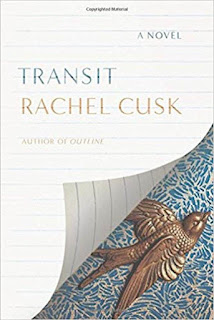 |
| Seidman Cancer Center Beachwood, Ohio |
Later today--about 2:30--Joyce and I will drive up, once again, to Seidman for my quarterly session with my oncologist--and to get my quarterly Trelstar injection (a testosterone nemesis: prostate cancer loves testosterone).
I'm not, of course, looking forward to it--for a variety of reasons: the intense cold, a missed workout at the health club (I hate working out now--but prefer it to cancer centers), a missed nap (among my very favorite "activities" these days), traffic on I-271 (where Construction has been the High King for, oh, a decade?).
As I've written here before, Seidman is simultaneously depressing and inspiring. In the waiting room are patients in every sort of condition--patients of every age and gender and race and ethnicity and (apparent) social status. Cancer is an equal-opportunity enemy. So ... it's hard to see all of that--to sit there in the waiting room and witness such suffering.
But, of course, we also witness such courage and compassion and empathy--people helping, being kind and considerate. I will not add the obvious comment about our current political climate ...
I've already had my blood tests, and the numbers are good for the nonce. Last summer, when my PSA had risen to 20.13 (not good: I should have no PSA since a surgeon removed my prostate gland in June 2005--a returning number means that prostate cancer has a grip, for the prostate cancer cells also produce PSA), my oncologist recommended a series of ten radiation sessions: One of my vertebrae had become a hostel for the cancer cells. And so the sessions commenced, and, by the end, I was often nauseated, had to force myself to eat, for ingesting had been unpleasant--all due to the radiation beams passing through my esophagus on the way to my spine.
Anyway, my periodic PSA measurements since the radiation sessions have been 11.98 (Sept 12), 3.36 (Oct 16), 1.93 (Nov 9), 1.07 (January 15). That's obviously good.
What's not obvious is that the decline will stop one of these days, and the numbers will begin to rise again. I am, you see, incurable. All the oncologist can do is delay and distract and wound the cancer. I've undergone immunotherapy (a year ago), am on a couple of heavy-duty meds (Trelstar and Xgeva, the latter for bone strength--my cancer has metastasized into my bones) ... some other, experimental, meds lie in my future--the proximity of that future we just don't know.
And without health insurance?
Let's not think about it. But let's do ask ourselves why we deny it to so many "fellow passengers to the grave." The quoted phrase comes from Dickens' A Christmas Carol--uttered by Scrooge's nephew very early in the tale: He says he sees Christmas "as a good time; a kind, forgiving, charitable, pleasant time; the only time I know of, in the long calendar of the year, when men and women seem by one consent to open their shut-up hearts freely, and to think of people below them as if they really were fellow-passengers to the grave, and not another race of creatures bound on other journeys.”
Anyway, I'll pause here and when I return from Seidman, I will complete this post, early this evening--or tomorrow morning.
Thursday, 10:30 a.m.
Well, all things considered, it went pretty well. There was the normal amount of waiting--both in the room that's named for waiting (where, for some reason, the TV monitor always features shows about a pair of twins who help people find/restore a dream house--quite a choice for a cancer center!) and in the examination room.
My oncologist was happy about my recent PSA score (and the other bloodwork), so I won't see him again till April, and he really had nothing too dire (!) to communicate to me this time. He did schedule me for a bone scan down the road a few months (not my favorite thing to do): They need to see where/if the cancer is building a homestead somewhere in my skeleton.
After he left the room, some more waiting--and then the Happy Encounter with the needle-in-the-hip: my quarterly Trelstar injection--a sharp conclusion to my visit.
On the way home Joyce commented about something I'd noticed on other visits, too: the positive demeanor of the other patients--even those looking pale as paper, with canes and walkers and wheelchairs. I share it a bit, and I think it's because we're in a place--a very good place--where some very bright people are trying to help us. Hope needs little encouragement in dark rooms, and gratitude and optimism are kin in a cancer clinic.
We got home a little after 5, prepared our dinner-of-leftovers, and slumped on the couch, a Pendleton blanket draped across my legs, ate and talked and realized that we have a few more months till next time. And few realizations are better than that!






















